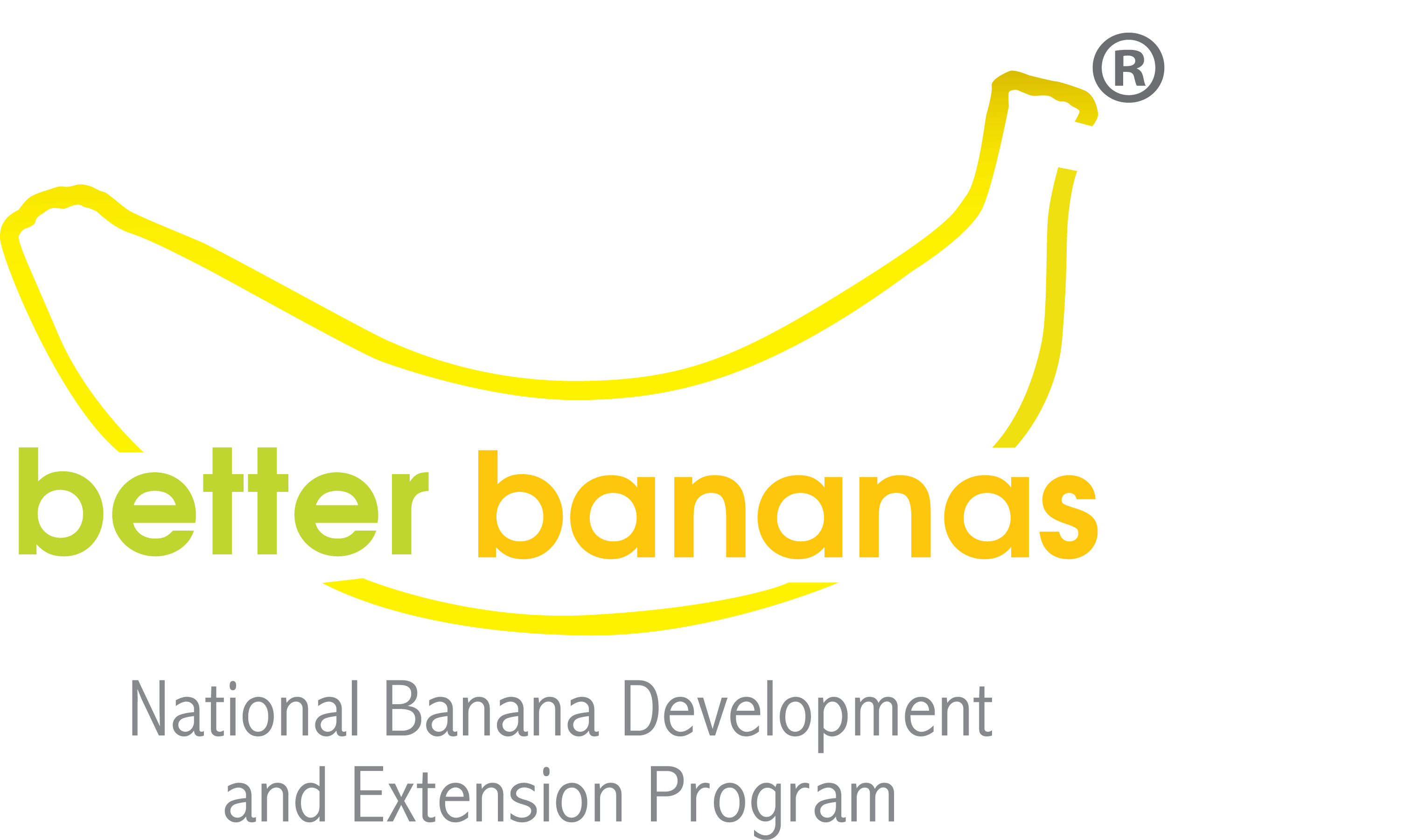Contributions by:
Sharl Mintoff1, Samantha Cullen1, Chris Kelly1, Maxine Piggott1 and Jeff Daniells2
1Northern Territory Department of Industry, Tourism and Trade, Darwin, NT
2Queensland Department of Agriculture and Fisheries, South Johnstone, QLD
Latest update...
Main trial
Eight varieties have demonstrated better resistance to TR4 than Formosana, which include two Cavendish selections being considered for the next phase of pre-commercialisation trials. Three of the hybrids from the CIRAD breeding program in the French West Indies displayed better resistance than Goldfinger. Click here for results!
Sub-trial
Four parents with stellar TR4 resistance have been identified. This will assist international banana breeding programs to incorporate TR4 resistance into new varieties. Click here for results!
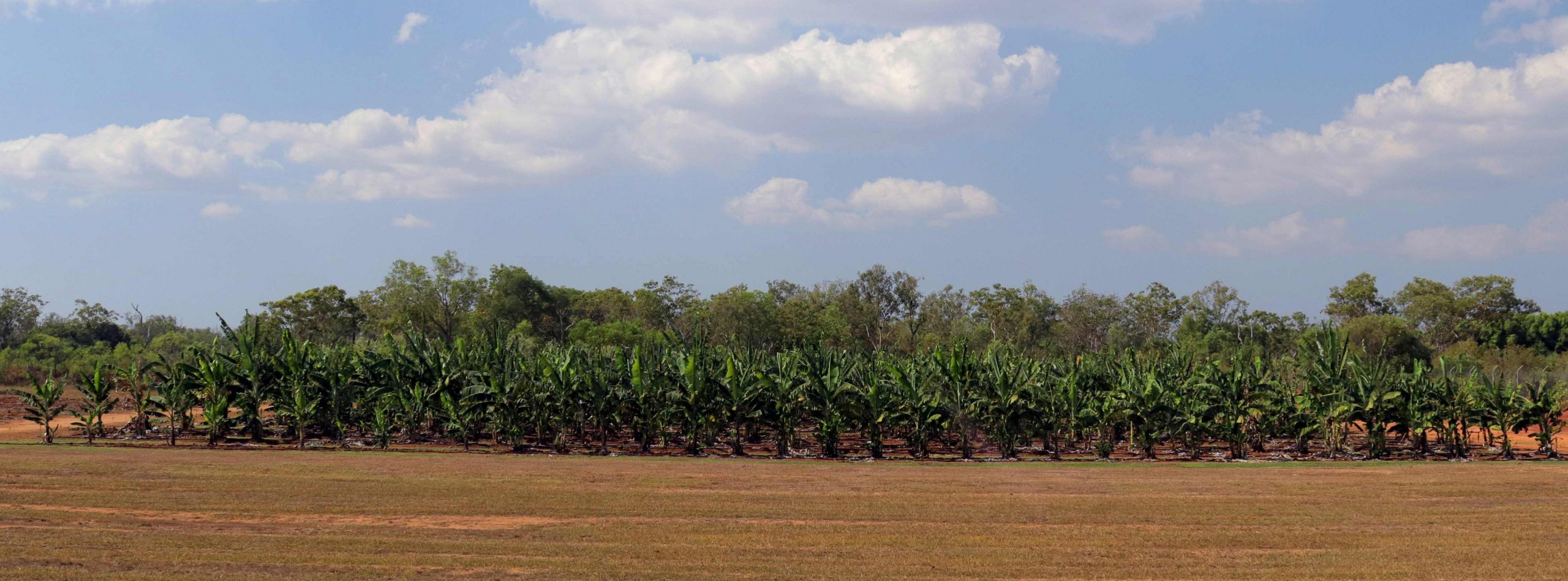
Panama disease tropical race 4 (TR4) continues to be a major threat to the Australian banana industry. Finding varieties that are resistant to Panama disease TR4 is a key component for continuing to produce bananas in the presence of the disease.
Over recent years variety screening trials have been running in the Northern Territory where the disease was declared endemic after its detection in the late 1990s.
About the trial
Conducted at the Coastal Plains Research Farm the trial was established on a site infested with Panama disease tropical race 4 (TR4). This trial is part of the project ‘Improved plant protection for the banana industry’ (BA16001). The overall trial screened 31 varieties (including three reference varieties) and assessed their resistance to Panama disease tropical race 4 (TR4). In summary the trial includes:
Main trial
• 17 varieties, planted in December 2018
• plants artificially inoculated with Panama disease TR4
• 24 plants of each variety (6 plants per replicate over 4 replicates)
• randomised complete block design
• three varieties with known response to Panama disease TR4 are included in the trial; Goldfinger
(resistant), Formosana/GCTCV218 (intermediate) and Williams Cavendish (susceptible)
• fortnightly assessments.
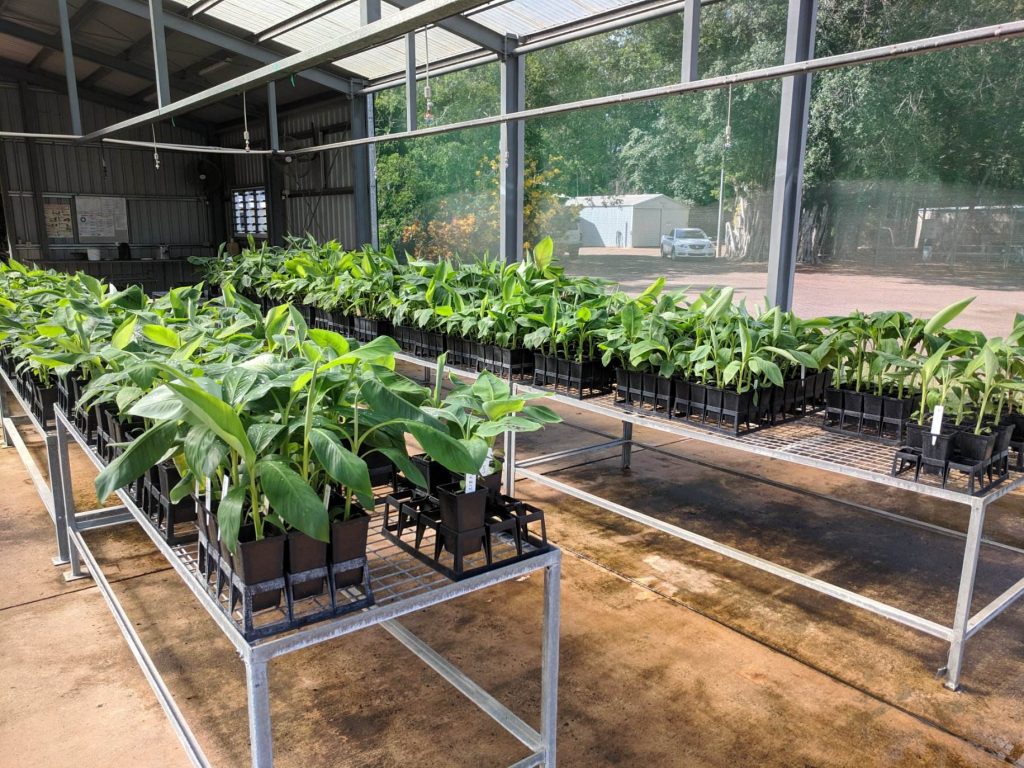
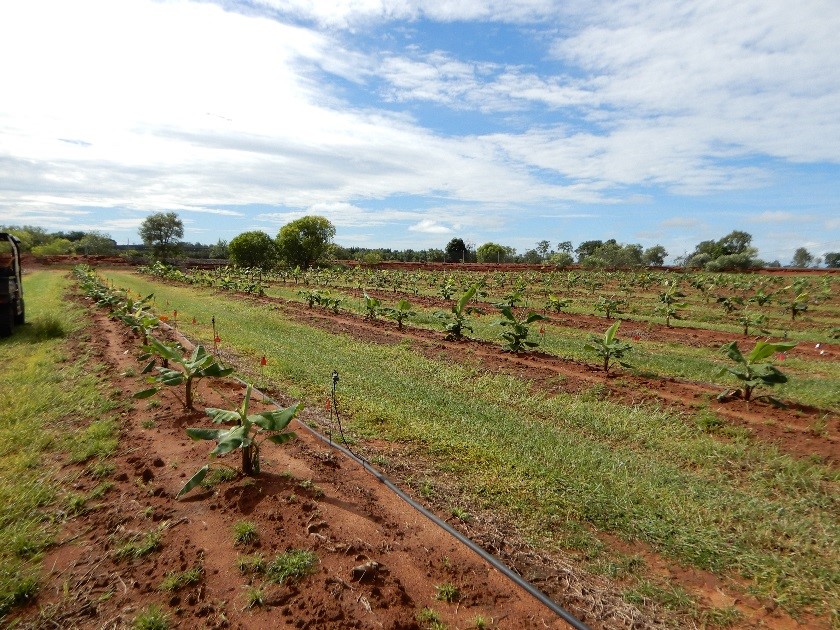
List of varieties
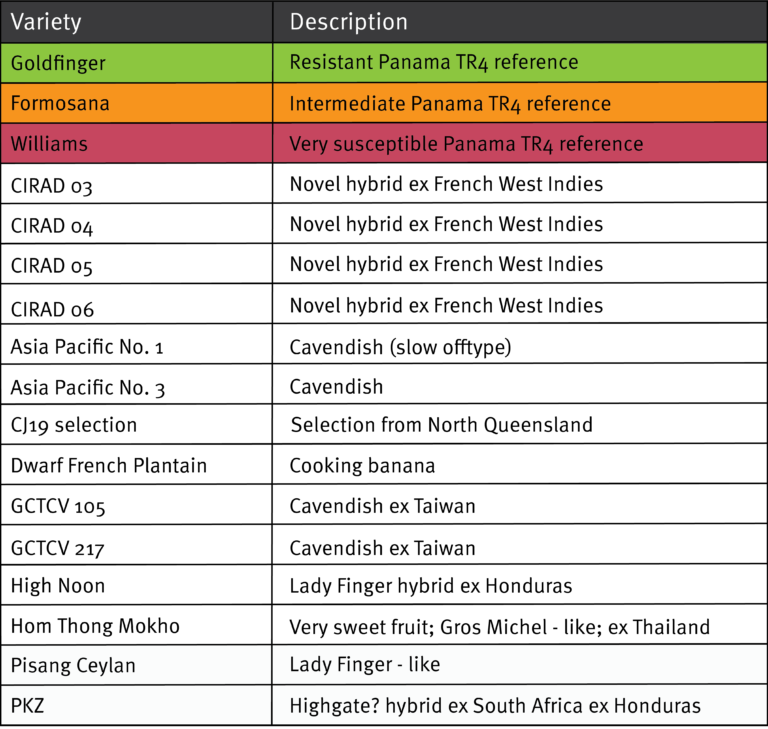
Sub-trial
The sub-trial consists mainly of parental lines from the CIRAD breeding program. This is a smaller trial in number due to difficulty replicating the lines using tissue culture. Results from this trial will provide useful information back to the breeding program on the level of resistance that parent material and hybrids have to Panama disease TR4. The trial includes:
• 17 varieties, planted in December 2018
• plants artificially inoculated with Panama disease TR4
• 10 plants of each variety (1 plant per replicate over 10 replicates)
• randomised complete block design
• fortnightly assessments.
List of varieties
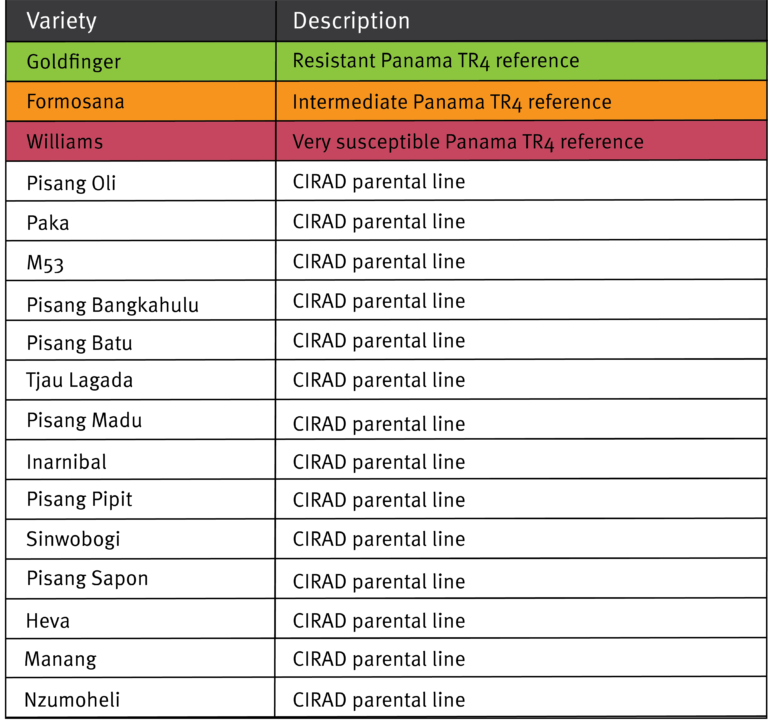
Trial progress
Williams Cavendish was the first variety to show disease symptoms in April 2019, approximately five months after planting. Disease assessments were carried out fortnightly once external symptoms became apparent in a susceptible variety. Assessments included noting the appearance of external disease symptoms and internal symptoms at plant death or harvest. The trial ran for 20 months with most of the surviving varieties completing their first ratoon crop cycle. The final disease assessments were completed in August 2020. Click here for the plant and first ratoon results for the main trial.
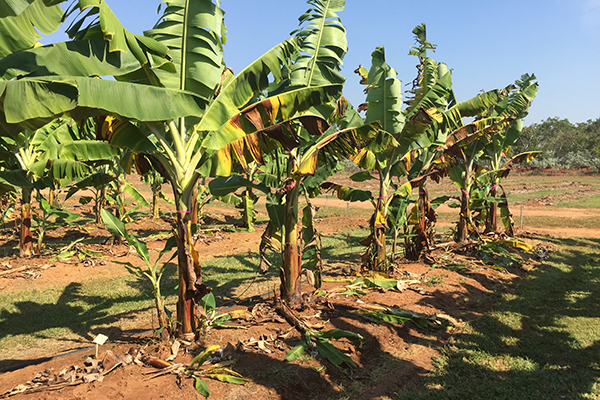
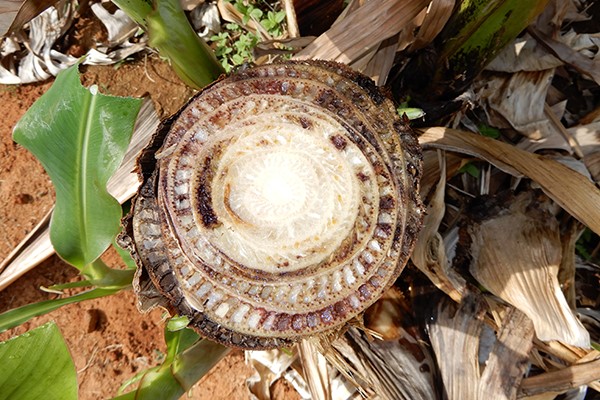
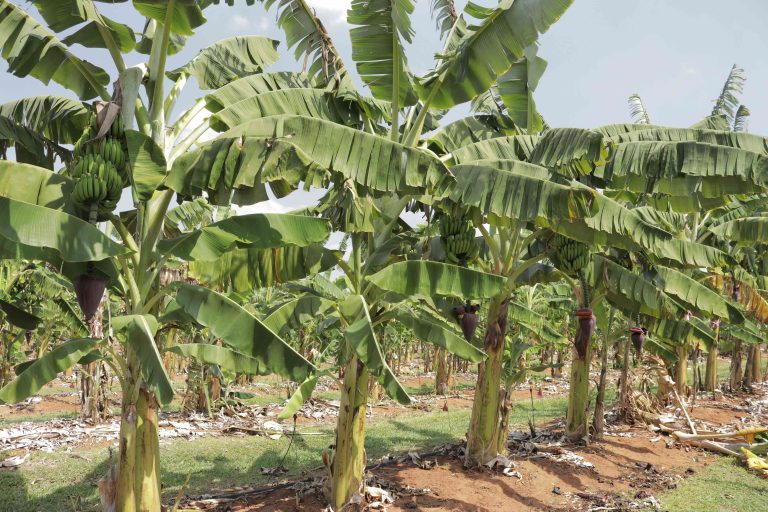
More information...
This research has been funded as part of the project Improved Plant Protection for the Banana Industry (BA16001), which is funded by Hort Innovation, using the banana research and development levy, co-investment from the Department of Agriculture and Fisheries and the Northern Territory Department of Industry, Tourism and Trade and contributions from the Australian Government. Hort Innovation is the grower-owned, not-for-profit research and development corporation for Australian horticulture.



